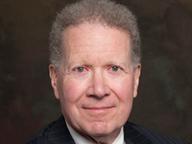School News
—
See Possible
—

MBA student Yaopeng Zhou and NYU Stern alumnus Marc Albanese (MBA ’08) have teamed up to develop a portable vision examination device, the Smart Autorefractor, an idea which most recently won them a $1 million prize in the healthcare category of Verizon’s Powerful Answers Challenge.
School News
—

MBA student Yaopeng Zhou and NYU Stern alumnus Marc Albanese (MBA ’08) have teamed up to develop a portable vision examination device, the Smart Autorefractor, an idea which most recently won them a $1 million prize in the healthcare category of Verizon’s Powerful Answers Challenge.

















